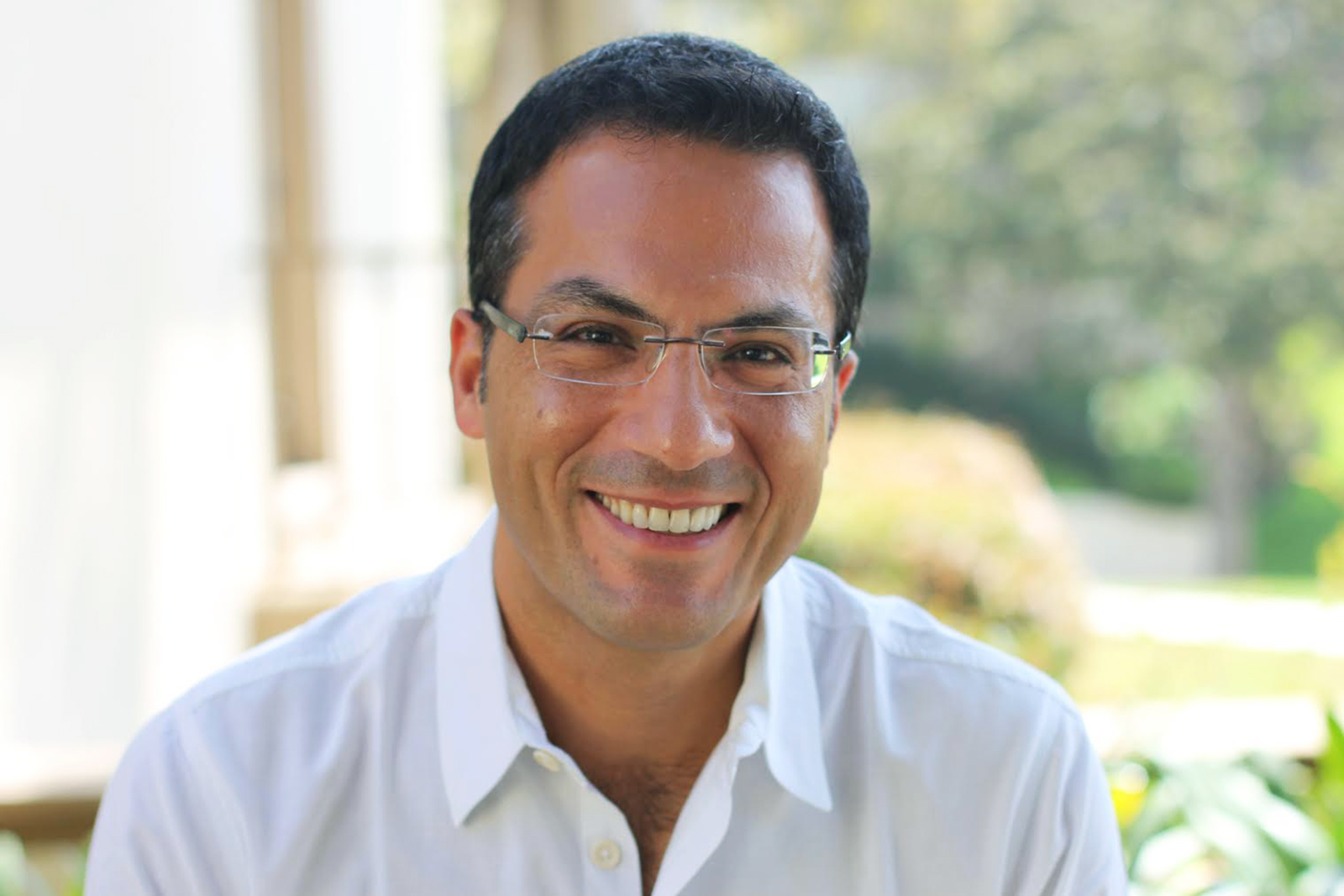Professor faced hardships in war-torn Iran, now heads UCLA department

Dr. Siavash Kurdistani, a biological chemistry professor at UCLA since 2004, was named chair of the department Wednesday. As chair, he wants to maintain the rigor of the department and make new discoveries. (Courtesy of Siavash Kurdistani)
By Meghan Hodges
July 6, 2015 9:10 a.m.
Dr. Siavash Kurdistani maintained and developed a curiosity for science and discovery throughout his youth, despite the hardships he faced as a member of an oppressed minority during wartime.
Growing up in Iran during the 1979 revolution and the consequent eight-year war with Iraq, Kurdistani faced oppression as a Jew, forcing him to escape from the country illegally.
Only a teenager, Kurdistani faced many challenges on his road to America, including climbing mountains from Iran to Pakistan with little food, imprisonment and the shock of moving to a foreign country without speaking the language.
Kurdistani, a biological chemistry professor, was named chair of the Department of Biological Chemistry Wednesday following many years working as a professor and researcher in the department.
Kurdistani said he developed a passion for science at an early age. He conducted experiments in his own backyard with earthworms after an elementary school teacher told him they would react differently to spicy and sweet stimulants.
“Obviously, these weren’t well-controlled experiments, but they were interesting to me,” Kurdistani said. “The research enterprise is not as well developed in Iran, so I never really got exposure to science until high school.”
Kurdistani said one of his high school science teachers gave him research articles about biology, chemistry and physics. His teacher later introduced Kurdistani to a pathologist, who he worked with to process and examine tissues in the laboratory.
As a Jew, he was barred from leaving Iran due to the laws in place at the time. At the age of 17, Kurdistani was also eligible for the draft, which would limit his opportunities for education. So, he decided to migrate to Pakistan illegally by himself.
“My parents felt that there was no future for their kids in Iran,” Kurdistani said. “Because of the war with Iraq, the social structure of the country was deteriorating, making it difficult for everyone, and even more so, minorities.”
Kurdistani lost 15 pounds over 10 days on his trip across the mountains into Pakistan, where the police immediately captured him. Following his detainment, Kurdistani arrived at the United Nations office in Pakistan, where he applied for immigration to the U.S. Eventually, he was able to reach New York.
“Growing up in Iran, one of the U.S. shows that was popular at the time was Baywatch,” Kurdistani said. “I was expecting the ocean and palm trees, but instead ended up in New York.”
Although the trip from Iran to Pakistan was traumatic, Kurdistani said his initial experiences transitioning to the culture of New York came as a shock.
“Every day was a new life, and I had to adapt to a new lifestyle,” Kurdistani said.
After finishing high school in Brooklyn, Kurdistani left New York for Los Angeles, developing his love for science through higher studies.
Following two years at Santa Monica College, Kurdistani transferred to UCLA, where he sought research work in chemistry or biology. He worked for Donald J. Cram, a chemist and Nobel laureate, from 1991 to 1994 in a chemistry lab.
After obtaining his medical degree from Harvard from 1994 to 1999, Kurdistani returned to UCLA in 2004 as a professor to open his own lab to study chromatin.
His team of researchers is currently studying chromatin, a complex of proteins and DNA that forms the basic structure of the genome, to understand its role in cancer.
Kurdistani said he wants to continue studying chromatin and gene expression.
“The way he goes about his work, he doesn’t think about it as an obligation; it’s something he does, and he just loves it,” said Orly Minazad, Kurdistani’s wife.
Kurdistani said he plans to maintain the rigor of the department, to conduct cutting edge research and to make new discoveries, despite the cuts in research funding for science over the past 10 years.
“Working with Professor Kurdistani is challenging, but it’s very rewarding (because he) constantly comes up with connections to whatever you’re working on,” said Maria Vogelauer, a research assistant in Kurdistani’s lab. “He’s very practical, approachable and concerned with the well-being of all labs in the institute.”
Those who have worked with Kurdistani noted his passion for his work.
“His passion for science is unique,” said Vogelauer. “I have worked with many passionate people, but Professor Kurdistani is very driven by his profound curiosity about life.”

